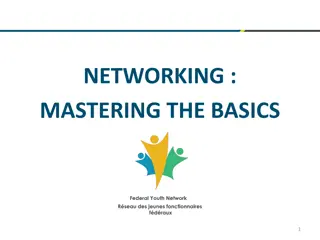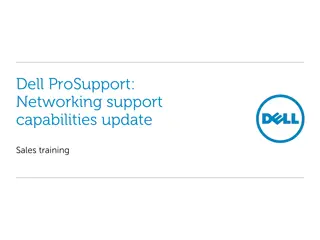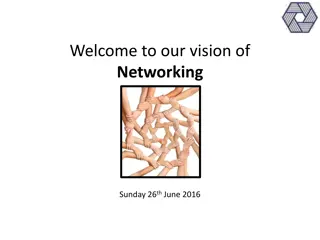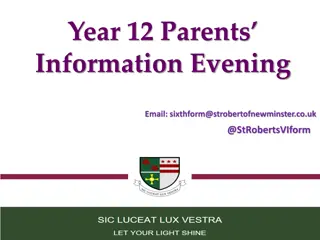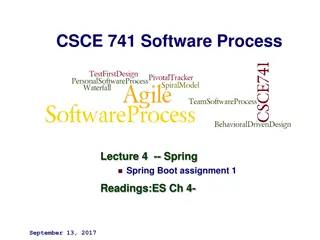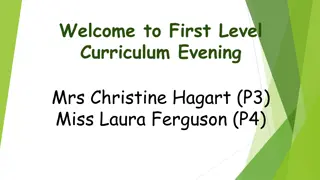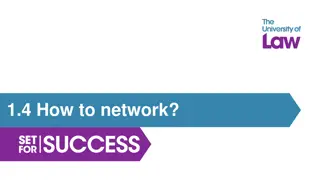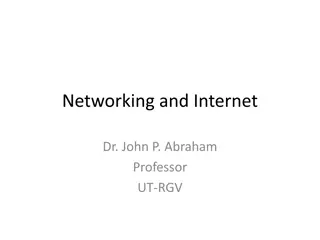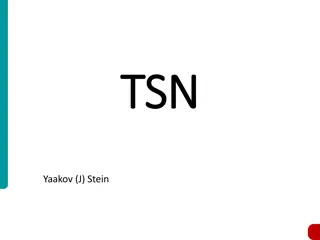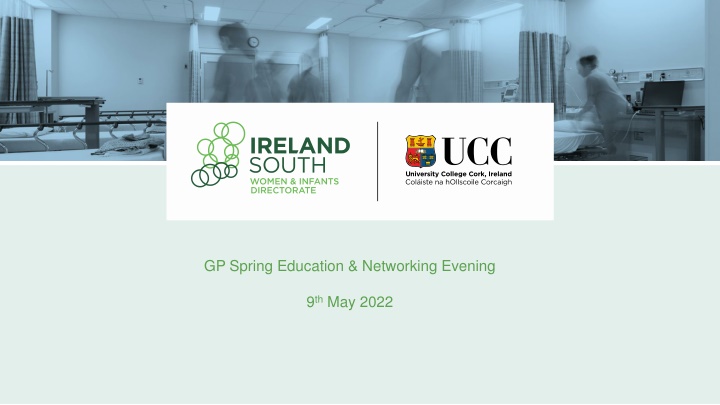
GP Spring Education & Networking Evening
Welcome to the GP Spring Education & Networking Evening scheduled for the 9th of May 2022. The event will feature panel introductions by healthcare professionals such as Dr. Richard Horgan, Ms. Majella Phelan, Ms. Alex Campbell, Dr. Fergus McCarthy, and Dr. Mairead O'Riordan. Topics will include smoking cessation strategies, guidelines for smoking in pregnancy, and the importance of Breath Carbon Monoxide (BCO) testing. The event aims to educate and connect healthcare providers to promote healthier practices in maternity care.
Download Presentation

Please find below an Image/Link to download the presentation.
The content on the website is provided AS IS for your information and personal use only. It may not be sold, licensed, or shared on other websites without obtaining consent from the author. If you encounter any issues during the download, it is possible that the publisher has removed the file from their server.
You are allowed to download the files provided on this website for personal or commercial use, subject to the condition that they are used lawfully. All files are the property of their respective owners.
The content on the website is provided AS IS for your information and personal use only. It may not be sold, licensed, or shared on other websites without obtaining consent from the author.
E N D
Presentation Transcript
GP Spring Education & Networking Evening 9th May 2022
Welcome & Panel Introductions Dr Richard Horgan, Consultant Obstetrician & Gynaecologist at CUMH, co-chair of CUMH/GP liaison committee Ms. Majella Phelan, CMM2, Smoking Cessation Ms. Alex Campbell, Registered Advanced Midwife Practitioner Dr Fergus McCarthy, Consultant Obstetrician & Gynaecologist Dr Mairead O Riordan, Consultant Obstetrician & Gynaecologist
Smoke Free Start CUMH Right Care, Right Place, Right Time Majella Phelan, CMM2, Stop Smoking
Smoke Free Start Onsite, midwifery-led stop smoking service. Introduced opt-out stop smoking service in CUMH. Introduced Breath Carbon Monoxide (BCO) testing for all pregnant women. Provide intensive Standard Treatment Programme for smoking cessation. Introduce Making Every Contact Count programme to CUMH.
Breath Carbon Monoxide Testing (BCO) Valid, reliable test to detect CO in exhaled air Quick, safe, immediate result at POC Non-invasive BCO testing during antenatal care combined with opt out referral to cessation services can increase attendance to support services by twofold and increases the probability of quitting by delivery by twofold (Campbell et al, 2016 and Bell et al, 2018)
BCO TESTING IN MATERNITY Prevents discrimination of the pregnant smoker Identifies smokers who do not disclose their smoking habit Identifies women exposed to second-hand smoke Identifies women exposed to CO through faulty equipment OPT OUT REFERRAL Refer all women who currently smoke All women who have recently stopped smoking for relapse prevention Women who have a BCO higher than 4ppm Any pregnant women who need support to stay quit
Standard Treatment Programme Session 1 Pre-quit assessment Session 2 Quit Date as soon as possible Session 3 1 week post Quit Date Session 4 2 weeks post Quit Date Session 5 3 weeks post Quit Date Session 6 4 weeks post Quit Date There is also 12 week, 26 week and a 52 week post quit date follow up Provided face-to face, telephone, online or a blended service.
Women Referred to Smoke Free Start TOTAL REFERRALS - 1608 SMOKE FREE BABIES 472 MULTIPAROUS 65% PRIMIPAROUS - NULLIPAROUS - 27% 8%
Smoking in Pregnancy in women attending CUMH Up to 16% of women at booking have smoked at some stage of the current pregnancy. Up to 33% of women at booking have a history of smoking. Attending specialist care 45% Mental Health issues 46% Linked with social workers 14% Other addictions 4.7% ER/Inpatient 64%
Cigarettes are Engineered to be Addictive Bullets points in Helvetica font Bullets points in Helvetica font Bullets points in Helvetica font Note logos at end of page can change
Consequences of smoking in pregnancy Subfertility Ectopic pregnancy (>1.7 times more likely) Miscarriage (24%-32% more likely) Preterm births (27 times more likely) Placental problems Low-lying placenta (>1.5 times more likely) Placental abruption IUGR Stillbirth doubles the likelihood Highly associated with IUGR Neonatal death (>1.7 times more likely) Sudden Infant Death Syndrome (2-3 times more likely) Reference: Action on Smoking and Health. The Smoking in Pregnancy Challenge Group: Review of the Challenge. July 2018) Euro-Peristat Project. European Perinatal Health Report. Core Indicators of the health and care of pregnant women and babies in Europe 2015
LIFELONG IMPLICATIONS FOR THE CHILD Attention deficit disorders, hyperactivity Learning disabilities Transplacental carcinogenesis Hearth defects (50% more likely in smokers, increased risk in SHS) Childhood obesity, Diabetes Cleft lip
Women receiving care in CUMH who smoke Pregnancy loss experienced by 36% of referrals, of these 37% had recurrent pregnancy loss. IUGE/LBW/VLBW - 22% VLBW 3.5% Birth weight < 3000g 38% Normal weight babies -14% GDM Preterm births 13% PPROM 3.5% Placental problems 5.4% PPH 19.5% Fetal death in current pregnancy 2.75%
National Clinical Guidelines Stop Smoking, No. 28 Prioritises pregnant women Ask and record smoking status Is the client a smoker, ex-smoker or a non-smoker? Are they exposed to second hand smoke in the car or home? Advise on the best way of quitting The best way to stop smoking is with specialist support, unsupported attempts are less effective. Act on woman s response Build confidence, give information, refer, prescribe. Up to four times more likely to quit successfully with support.
Why specialist Maternity Stop Smoking Service Recommended by National Maternity Strategy, HIQA HTA, National Clinical Guideline No 28, Stop Smoking On site, can combine care with antenatal appointments Provided by a Midwife with specialist training in behavioural change for pregnant women who smoke. Service can liaise with other specialist services to give a multidisciplinary approach to antenatal care. Provides a safer care pathway for women attending maternity services
Referring to Smoke Free Start Email Majella.Phelan@hse.ie Please put GP Smoking Cessation referral in email subject. Letter Majella Phelan CMM2, Smoking cessation service, Cork University Maternity Hospital. Phone 0871514202 Contact details on CUMH website
Introduction of the New Antenatal Care Pathways Alex Campbell, Registered Advanced Midwife Practitioner, Supported Care 9th May 2023
Why Change Antenatal Care Pathways? To promote: Streamlined person-centred visits during antenatal period. Triage at pre-booking to assess risk occurs ahead of in-person appointment with Midwife and Obstetric Consultant. Standardise antenatal care & information provided GP visits to compliment hospital/community appointments. Increase midwifery led clinics in the community, in line with National Maternity Strategy Continuity of care meet midwife at every routine visit Antenatal and health education at every midwife appointment
Antenatal Care Pathways The National Maternity Strategy Creating a Better Future Together (2016) views childbirth as a natural life event however it also recognises that some women have higher care needs. Accordingly, the Strategy has designed one model of care with three care pathways for women progressing through the maternity system, depending on their level of risk:
Supported Care Pathway Supported Care Pathway The woman is respected as the primary decision maker and midwives assist her in this process through the provision of accurate and unbiased information on which to base informed choices. Midwife Clinic & Education 20 - 21 weeks Any additional USS determined by individual assessment Anatomy USS 20 21 weeks Recognising the benefits of community-based continuity of care, the Supported Care Pathway aims to provide women with holistic, safe midwifery care. GP visit at 24, 28 weeks Midwife Clinic 32 weeks Where deviations from the norm are suspected or identified, a multi-disciplinary approach to care will be adapted in collaboration with the woman. GP visit at 34 weeks Midwife Clinic 36 weeks AN education classes At each antenatal appointment, the health and well- being of the mother and baby will be assessed any confirmed or suspected concerns are referred as appropriate. GP visit at 37, 38 weeks Midwife Clinic 39, 40, 41 weeks
Outreach Locations Area Carrigtwohill Health Centre Carrigtwohill Primary Care Centre T45 DT93 Day Mondays Times All day Carrigaline Carrigaline Primary Care Centre P43 PX99 St Mary s Primary Care Centre T23 V09X Living Health Clinic Primary Care Centre, Fermoy Rd., Mitchelstown, Co. Cork. Tuesdays All day Gurranabraher Wednesday, Fridays Wednesday All day Mitchelstown 8am 2pm Mallow Mallow Primary Care Centre, Gouldshill, Mallow, Co. Cork Thursdays 8am 2pm *Ballincollig & Bantry have recently been confirmed as outreach locations. Clinics to commence soon Women considered normal-risk can avail of midwifery led antenatal care through the Supported Care Pathway. Benefits include: Easily accessible clinics Free parking Continuity of care Scan clinics The midwifery led clinics are set in a relaxing, comfortable environment around Cork city and county. Regardless of the clinic location, care will be provided by CUMH staff, and babies will be born in Cork University Maternity Hospital.
Antenatal Care Pathways GP referral 6 8 weeks Midwife: Pre-booking triage adjusted if needed 10 12 weeks Clerical staff: Triage based on GP referral Dating USS, Midwife & Consultant Risk Assessment apt 11 13 weeks Referral pathway in place if Obstetric review/transfer of care indicated Private Patients attend Assisted or Specialised Care Specialised Care Pathway Assisted Care Pathway Supported Care Pathway Woman opts out of SCP
Triaging and E-referrals Dr Fergus McCarthy, Consultant Obstetrician Gynaecologist 9th May 2023
Specialised Care Pathway Assisted Care Pathway Supported Care Pathway Woman opts out of SCP Midwife Clinic & Education 20 - 21 weeks Antenatal Clinic & Midwife Education 20 - 21 weeks Individual care plan & apt schedule based on clinical indication Any additional USS determined by individual assessment Anatomy USS 20 21 weeks Anatomy USS 20 21 weeks GP visit at 24, 28 weeks Anatomy USS 20 21 weeks Antenatal Clinic & Midwife Education 32 weeks GP visits at agreed intervals Midwife Clinic 32 weeks GP visit at 34 weeks Antenatal Clinic & Midwife Education 36 weeks Midwife Clinic 36 weeks Midwife Education Minimum points of contact: 20 - 21 weeks 32 weeks 36 weeks 39 weeks 40 weeks AN education classes AN education classes GP visit at 37, 38 weeks Antenatal Clinic & Midwife Education 39, 40, 41 weeks Midwife Clinic 39, 40, 41 weeks Individualised Birth Planning Birth Consider ETHS/Postnatal Hubs for Postnatal Care following birth
Membership MDT Antenatal Working Group Midwifery management OPD midwifery management Project manager Consultant rep NCHD rep Advanced midwife practitioner Domino services Early transfer home Postnatal Hubs rep Ultrasound Clerical rep Cerner CME Communications manager GP liaison 7
Antenatal Referral - Healthlink E-referrals for antenatal patients ( new bookers ) into Cork University Maternity Hospital (CUMH) will be available via Healthlink from the week commencing 15th May 2023. 7
Hot Topics in Antenatal Care Dr Mairead O Riordan Consultant Obstetrician & Gynaecology 09/05/2023
Vitamin D Normal values At risk groups Supplementation Vs treatment Pregnancy specific outcomes Fetal /infant outcomes
Vitamin B12 Normal Values At risk groups Supplementation Vs treatment Boots and Tesco 2.5Ug Hydroxocobalmin Injections Pregnacare 6ug Pregnancy specific outcomes Fetal /infant outcomes
Hypertension Continue treatment unless Sustained systolic blood pressure is less than 110 mmHg or Sustained diastolic blood pressure is less than 70 mmHg or Symptomatic hypotension. [2019] Offer antihypertensive treatment Sustained systolic blood pressure of 140 mmHg or higher or Sustained diastolic blood pressure of 90 mmHg or higher. [2019] When using medicines to treat hypertension in pregnancy, aim for a target blood pressure of 135/85 mmHg. [2019] Nice Guidelines
Resources https://www.nice.org.uk/guidance/ng133/resources/chronic- hypertension-prepregnancy-advice-pdf-8720711392 https://www.nice.org.uk/guidance/ng133/resources/planning-care-for- women-at-moderate-and-high-risk-of-preeclampsia-pdf-8720711390
Long-term Progression Cohort 1 (1978-1985) 6 years 18% DM (4%Type 1 /14% Type 2) 19 years, 37% DM (5% type 1 diabetes, 32% type 2 diabetes),29% had prediabetes, meaning only a third had normal glucose tolerance. Cohort 2 (1987 and 1996.) 7 years 41% had diabetes (4% type 1 diabetes, 37% type 2 diabetes) and 26% had prediabetes [9]. Risk of progression is 3-fold Damm, P., Houshmand-Oeregaard, A., Kelstrup, L. et al. Gestational diabetes mellitus and long-term consequences for mother and offspring: a view from Denmark. Diabetologia 59, 1396 1399 (2016). https://doi.org/10.1007/s00125-016-3985-5
Risk of Congenital Abnormalities Guerin A, Nisenbaum R, Ray JG. Use of maternal GHb concentrationto estimate the risk of congenital anomalies in the offspring of women with prepregnancydiabetes. Diabetes Care. 2007Jul;30(7):1920-5.






